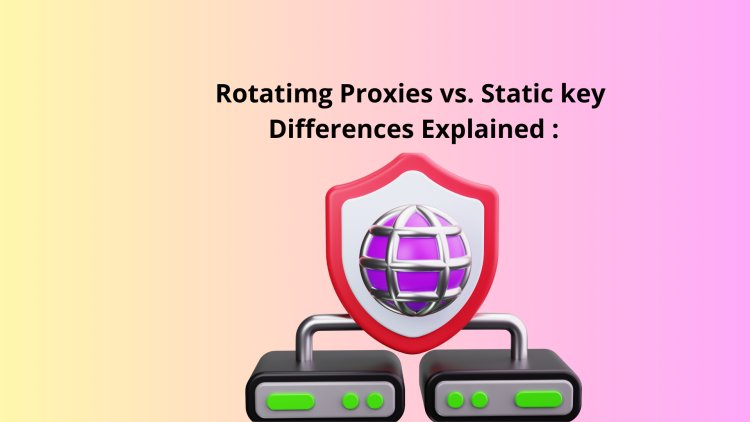Rotating Proxies vs. Static Proxies: Key Differences Explained
Discover delicious recipes, cooking tips, and food articles to inspire your next meal

Proxies play a vital role in enhancing online privacy, bypassing restrictions, and enabling efficient web scraping. Among the most popular types are rotating and static proxies. This article dives into their differences, benefits, and use cases to help you make an informed choice.
What Are Rotating Proxies?
Rotating proxies assign a new IP address for every request or after a set time interval, ensuring that traffic originates from a different IP each time.
Key Features:
- Dynamic IP address allocation.
- Access to a large pool of IP addresses.
- Enhanced anonymity and reduced risk of detection.
Benefits:
- Ideal for large-scale web scraping to avoid bans or IP throttling.
- Circumvents CAPTCHA and geo-restrictions.
- Offers high anonymity for sensitive online tasks.
Use Cases:
- Web scraping and data collection.
- Ad verification.
- Price monitoring and e-commerce tasks.
What Are Static Proxies?
Static proxies provide a fixed IP address that remains consistent throughout the session or activity.
Key Features:
- A single IP address for all requests.
- Stability and reliability in maintaining long-term connections.
Benefits:
- Suitable for tasks requiring a consistent identity.
- Reduced chance of triggering security measures in systems that flag IP changes.
- Easier configuration and maintenance.
Use Cases:
- Logging into accounts requiring IP consistency.
- Managing social media accounts.
- Accessing region-locked content.
Rotating vs. Static Proxies: Key Differences
| Aspect | Rotating Proxies | Static Proxies |
|---|---|---|
| IP Address Behavior | Changes frequently or per request. | Remains fixed throughout the session. |
| Risk of Blocking | Lower risk due to dynamic IPs. | Higher risk if overused. |
| Use Case | Ideal for high-volume, anonymous tasks. | Suitable for consistent, stable tasks. |
| Complexity | Requires integration for IP rotation. | Easy to use and maintain. |
How to Choose the Right Proxy
-
Choose rotating proxies if:
- You need to scrape large datasets.
- Anonymity and dynamic IPs are essential.
- You face frequent CAPTCHA challenges.
-
Choose static proxies if:
- Your tasks require a stable connection.
- You’re managing accounts or need a consistent identity.
- IP changes could raise security flags.
Conclusion
Both rotating and static proxies offer unique advantages tailored to different needs. Rotating proxies are perfect for anonymous, large-scale activities, while static proxies excel in tasks requiring consistency and reliability. Understanding your goals will help you select the proxy type that best suits your needs.
What's Your Reaction?


















